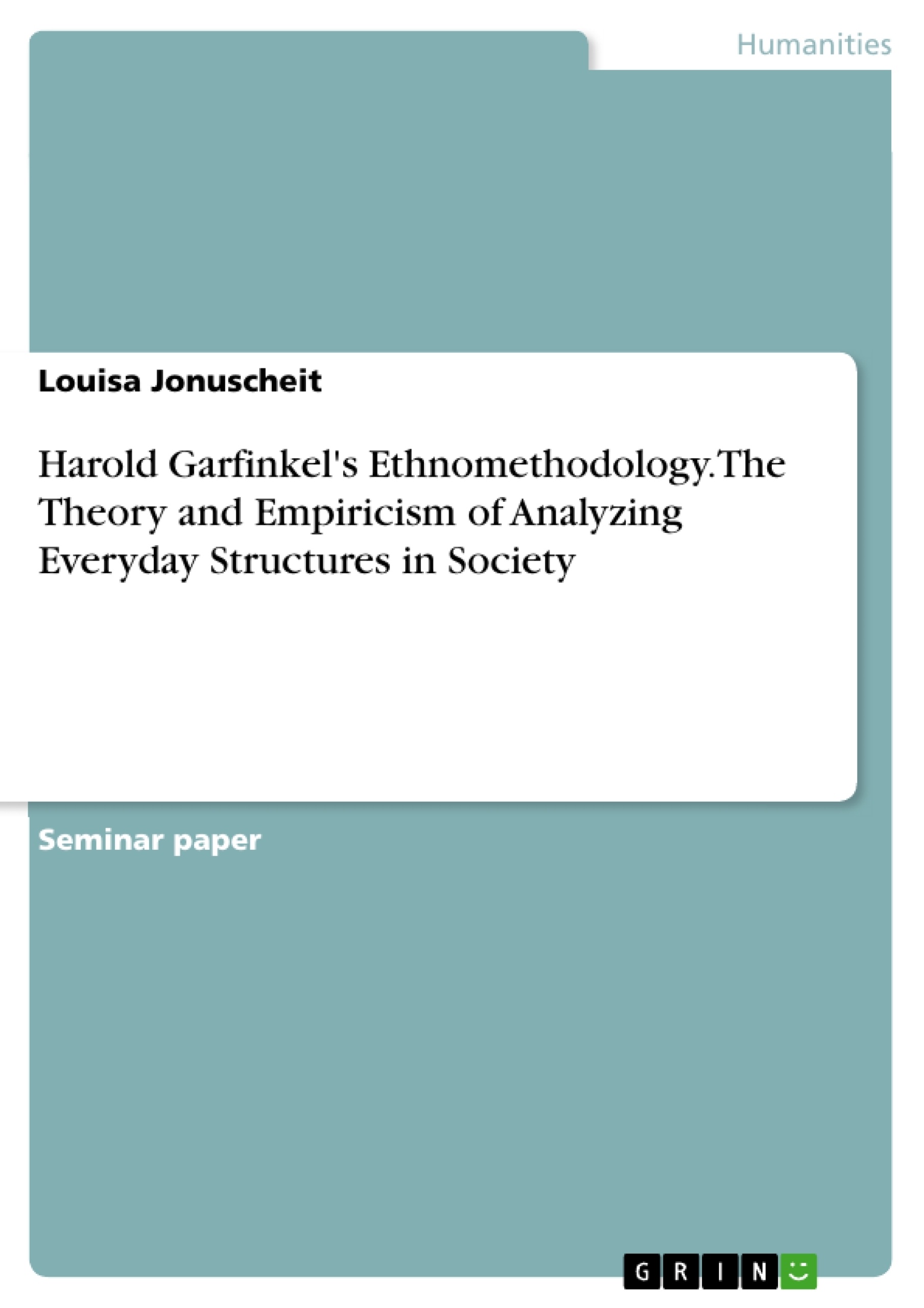Die Hausarbeit setzt sich mit der bekannten Methode der 'Ethnomethodologie' von Harold Garfinkel auseinander.
Zu Beginn werden allgemeine Definitionen aufgezeigt, inklusive der Begriffserklärung sowie einige wichtige Angaben zum Autor.
Im Hauptteil werden genauer auf die sogenannten 'Krisenexperimente' eingegangen und Rückschlüsse auf den Hintergrund der Entwicklung dieser Methode gezogen.
Abschließend folgt ein kritischer Blick auf diese Methode sowie ein Fazit mit eigener Meinung im Schlussteil.
Table of Contents
- Preface
- Introduction
- Harold Garfinkel
- Ethnomethodology
- Phenomenology & Ethnomethodology
- Main part
- Fundamental Assumption
- Intention
- Basic objective
- Breaching Experiments
- Rationality
- Reflexivity
- Critical View
Objectives and Key Themes
This essay aims to provide a comprehensive analysis of Ethnomethodology, a sociological field of research established by Harold Garfinkel. The work examines the fundamental assumptions, theoretical concepts, and empirical studies associated with this approach. It delves into the methods employed by members of society to make sense of their world and navigate everyday interactions.
- The role of common sense knowledge in social interaction.
- The concept of "breaching experiments" and their implications for understanding social norms.
- The different dimensions of rationality as applied to everyday activities.
- The significance of reflexivity in shaping social realities.
- The critique of traditional sociological perspectives on everyday life.
Chapter Summaries
The preface introduces the concept of Ethnomethodology and its origins, highlighting the work of Harold Garfinkel and his book "Studies in Ethnomethodology."
The introduction provides biographical details about Harold Garfinkel, outlining his academic journey and influence. It also defines Ethnomethodology as a sociological approach that focuses on the methods individuals utilize to navigate their social world.
The main part delves into the fundamental assumptions of Ethnomethodology, examining the role of common sense knowledge and interaction in shaping social reality. It explores "breaching experiments" as a method to reveal the underlying structures of social norms. The chapter on rationality discusses various dimensions of this concept in relation to social actions. The significance of reflexivity, or self-awareness, in social processes is explored, as well as critical perspectives on Ethnomethodology.
Keywords
Ethnomethodology, Harold Garfinkel, common sense knowledge, breaching experiments, rationality, reflexivity, everyday life, social interaction, social norms.
- Citar trabajo
- Louisa Jonuscheit (Autor), 2015, Harold Garfinkel's Ethnomethodology. The Theory and Empiricism of Analyzing Everyday Structures in Society, Múnich, GRIN Verlag, https://www.grin.com/document/309576




